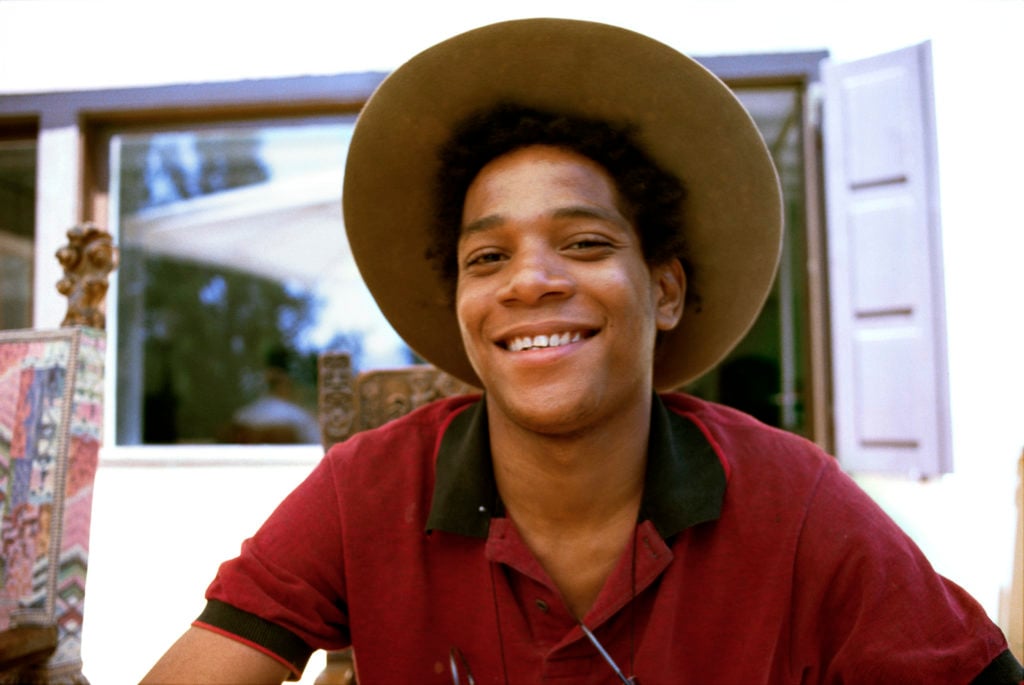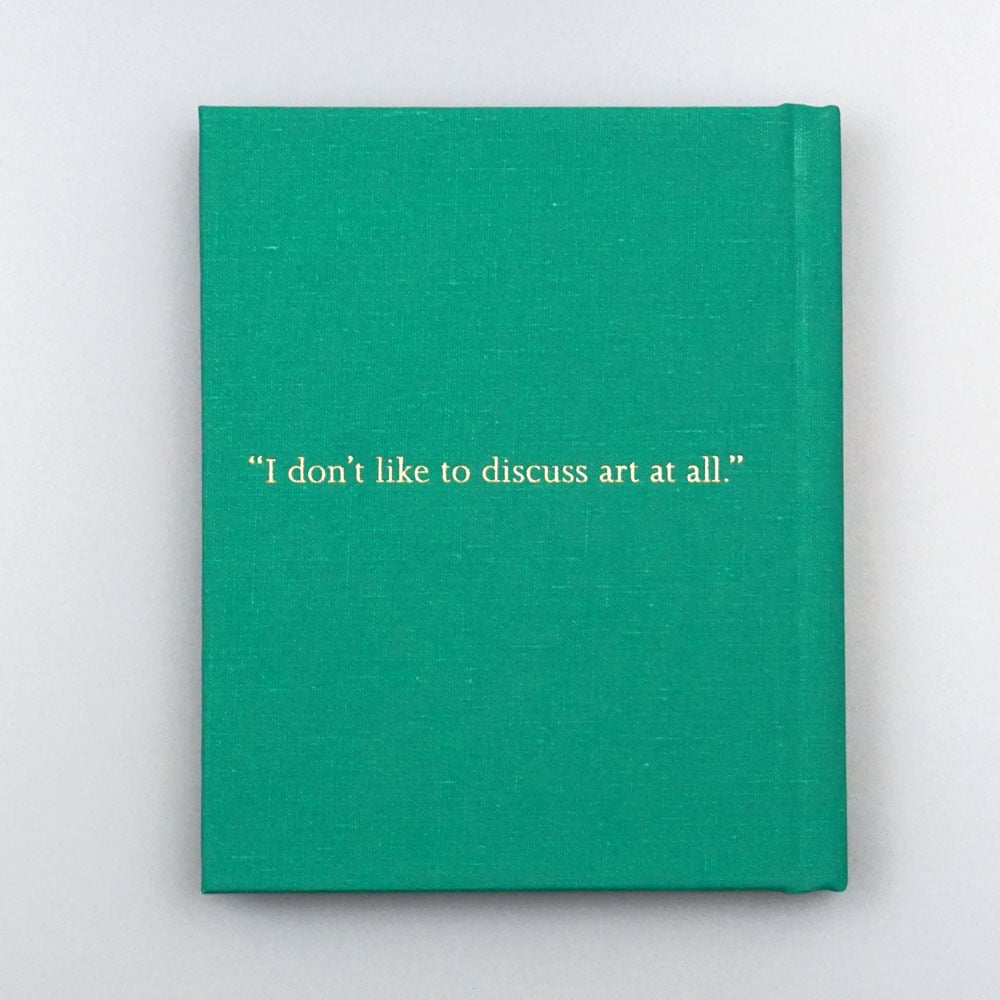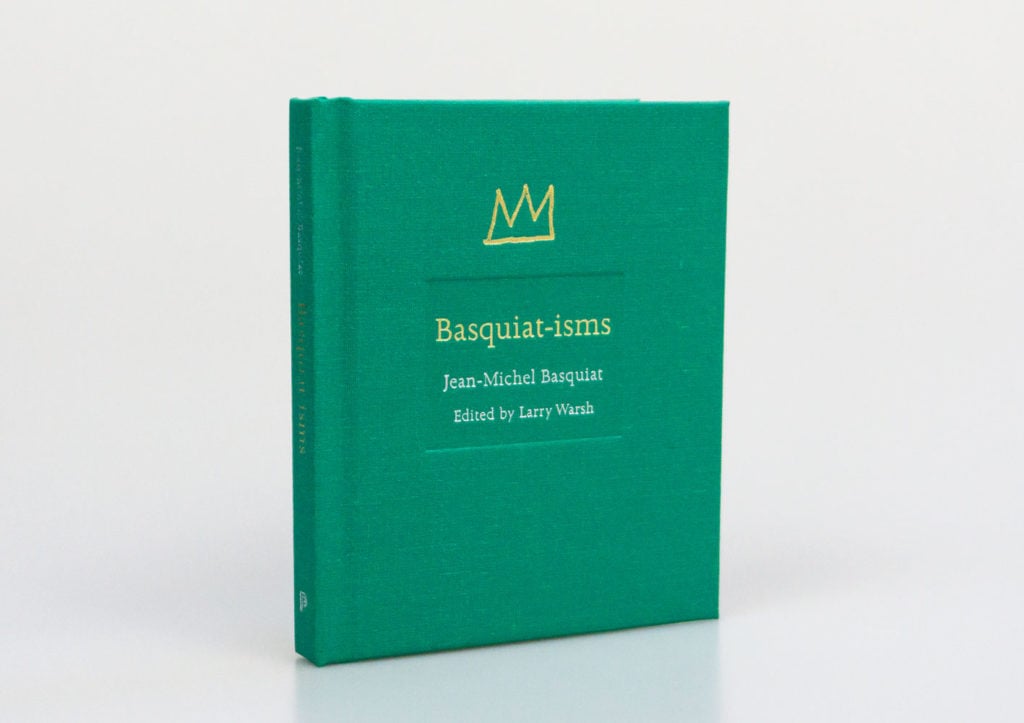People
A New Book of Jean-Michel Basquiat Quotations Sheds Light on the Artist’s Playful Relationship to Language
'Basquiat-isms' was edited by the artist's longtime collector Larry Warsh.

'Basquiat-isms' was edited by the artist's longtime collector Larry Warsh.

Taylor Dafoe

Nearly every work of art that Jean-Michel Basquiat produced during his short career, from the text-heavy street art to his dynamic canvases made in the studio, feature some form of written word.
Sometimes he incorporated witty phrases; other times a bit of dada-like poetry: “MOST YOUNG KINGS GET THEIR HEAD CUT OFF”; “ROME PAYS OFF ©.” Indeed, the artist used language the way he did paint and pencil, distilling into words his idiosyncratic outlook—and doing so with his signature mix of profundity and playfulness.
Now, a new book from Princeton University Press uses these signature snippets and quips as a lens through which to look at Basquiat’s work. Titled, appropriately, Basquiat-isms, the book pulls together a selection of quotes culled from Basquiat’s art, notebooks, and interviews, distilling into digestible blurbs everything from his musings on museums and Warhol to the formative experiences of his childhood.
In one, Basquiat talks about his process: “I start with a picture and then finish it. I don’t think about art while I work. I try to think about life.”
And yet, by Basquiat’s own admission, he didn’t like to talk about art—especially his own. He even says so on the back cover of the book: “I don’t like to discuss art at all.”

Basquiat-isms (2019), edited by Larry Warsh. Courtesy of Princeton University Press.
To the book’s editor, Larry Warsh, a New York-based publisher and longtime Basquiat collector, this is one of the purest insights into what made the enigmatic artist special, and it’s his favorite quote. “Basquiat was a man of action,” Warsh tells artnet News. “He created more culture-breaking, revolutionary works in 10 years than most artists are capable of in a lifetime. While his thoughts and his prose, often incorporated into his work, led the way for him to be one of the most important artists of the century, imagine if Basquiat had spent his time just talking about art, like so many artists we know.”
“The phenomenal volume of works that made him such an important figure would not exist,” he adds. “Look at what we got! He was a doer, a creative genius, with the ability to create a whole world around the word.”
Warsh has long established himself as one of the foremost authorities on the legacy of the artist. He was a co-founder of the Basquiat Authentication Committee in 1984 and a member until the organization dissolved in 2012. Three years later he published Jean-Michel Basquiat: The Notebooks, a facsimile of the artist’s personal sketches and notes.

Basquiat-isms (2019), edited by Larry Warsh. Courtesy of Princeton University Press.
This book is a follow-up to a similar book of quotes from Chinese artist Ai Weiwei, Humanity, which Warsh also edited and published with Princeton.
“Ai Weiwei and Basquiat are very different artists and individuals, and their unique voices became louder and louder, and clearer and clearer to me as I moved on with this process,” Warsh says.
For Basquiat, that means everything from the cryptic—“I am, what I am, what I am.”—to the earnest: “The greatest treasures of the world are art. They are the most lasting; they are still here after people.”